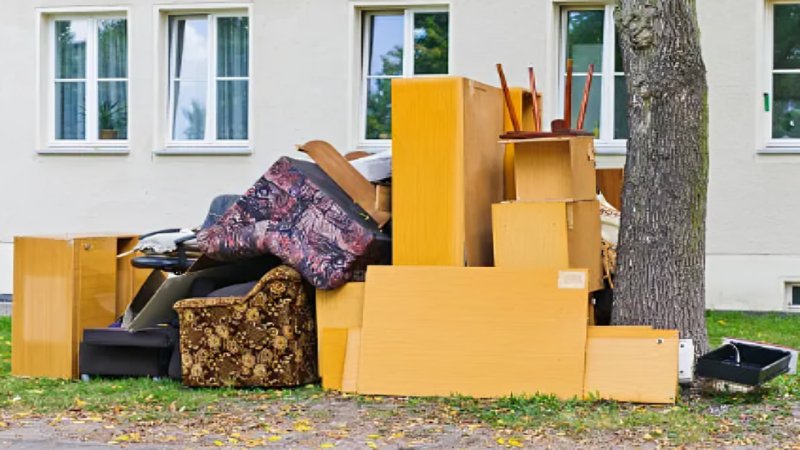The clutter of modern life necessitates the smart and sustainable removal of unwanted items. Thanks to innovations in the industry, what once felt like an overwhelming chore is now manageable—and even potentially rewarding.
Homeowners and businesses are utilizing junk removal services to manage unwanted goods efficiently, all while making a positive environmental and community impact. By adopting inventive approaches, individuals and companies can transform the often-overlooked task of junk removal into a purposeful process.
For those seeking to declutter and support eco-friendly initiatives, several modern strategies can streamline the process, reduce stress, and benefit both local communities and the planet as a whole. Whether it’s through technological advancements or community engagement, the world of junk removal is undergoing a sustainable movement that invites everyone to take part.
Embracing Technology in Junk Removal
Technological advancements are revolutionizing traditional junk removal. Smart sorting systems now utilize artificial intelligence and robotics to identify and separate materials on conveyor belts, significantly reducing human error and accelerating recycling rates. These machines help recycle more efficiently, minimizing the amount of waste sent to landfills.
In cities and larger businesses, GPS routing software helps optimize collection routes, reducing emissions from service vehicles and conserving resources. According to The New York Times, AI-powered recycling robots are making waste management more efficient, helping companies meet their environmental goals.
Repurposing Before Disposal
Getting creative before tossing unwanted items can significantly reduce waste. Repurposing is not just about DIY projects—it’s about reimagining the lifecycle of everyday goods. For example, you can remodel an old dresser into a chic pet bed or convert a ladder into a bookshelf. Glass jars are prime candidates for upcycling into storage containers, crafts, or organizers.
Families can turn cardboard boxes into playhouses and old linens into cleaning rags or quilt patches. These inventive changes give objects a second life and reduce dependency on new purchases, fostering a more circular economy that agencies like the U.S. Environmental Protection Agency endorse.
Community Engagement and Donations
One of the most impactful ways to reduce waste is by donating items that still have value. Many nonprofits and local shelters are eager to accept gently used clothing, toys, or furniture, which they pass along to individuals and families in need. Doing so supports vulnerable populations and keeps usable goods out of the waste stream.
Community “swap meets” and online marketplaces are also excellent ways to rehome unwanted items. This community-oriented mindset fosters generosity and sustainability at the local level.
When to Choose Professional Junk Removal Services
When the volume or type of junk surpasses what you can handle, professional removal services provide essential support. These specialists understand how to safely separate, transport, and dispose of various materials in compliance with regulations. From residential cleanouts to commercial demolition debris, their customized solutions save clients time and labor.
Many reputable providers prioritize eco-friendly disposal and even collaborate with local recyclers and donation centers, striving to maximize item reuse and minimize environmental impact. For larger cleanouts, pairing these services with a dumpster rental can make the entire process more efficient and environmentally responsible.
Eco-Friendly Junk Removal and Disposal Methods
Adopting more sustainable waste management methods means prioritizing recycling and upcycling wherever possible. Local recycling facilities can process electronic waste, metals, paper, and plastics in a responsible manner. Composting programs are gaining traction, transforming organic waste into usable soil instead of sending it to landfills.
Many cities also offer hazardous waste drop-off events, making it safer and easier to dispose of old batteries, paint, or chemicals. Adhering to these eco-friendly guidelines reduces pollution and conserves valuable resources, aligning with efforts promoted by National Geographic and other environmental leaders.
Innovative Policies for Urban Waste Management
At the municipal level, new policy initiatives are shaping the future of waste management. City planners are experimenting with programs such as curbside composting and “Dumpster Accessibility Initiatives” to improve recycling rates and reduce illegal dumping. Some cities subsidize recycling bins for residents or pilot digital platforms that simplify scheduling large-item pickups.
These policies enhance overall sanitation and boost efficiency while promoting civic participation. As seen in progressive cities, urban waste management is evolving, integrating public health goals and community input for more sustainable outcomes.
Conclusion
Junk removal has become a springboard for innovation and community improvement. By leveraging technology, creative reuse, and collaborative efforts, everyone can contribute to reducing waste. Whether you’re embracing smart sorting systems, donating durable goods, or seeking professional assistance, each step makes a difference.
Incorporating eco-friendly practices into your routine declutters your space and contributes to building a healthier, cleaner, and greener planet for future generations.
See Also: Why Professional Gutter Cleaning Is a Smart Investment for Homeowners
